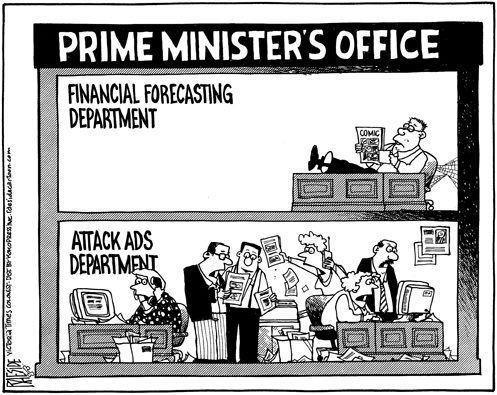
In his column this morning, The Star's Tim Harper points out something that I think many of us are all too aware of: Stephen Harper is a hypocrite. There really is no other way to describe the despicable partisanship that permeates our Prime Minister's deformed soul, most recently on display in London when he took the opportunity to exploit the tragedy of the Boston Marathon deaths and grievous injuries from a terrorist bombing.
As Tim Harper tartly observes, the usual protocol of not criticizing one's own country while abroad depends on who’s talking. There is one rule for Stephen Harper and another rule for everyone else.
The columnist reminds us of how Tom Mulcair, during his recent trip to Washington, offered some trenchant criticism when responding to questions by Canadian reporters:
When Mulcair questioned Canada’s commitment to fighting climate change, raising the Conservative decision to abandon Kyoto and its inability to meet its Copenhagen greenhouse gas emission targets, the government went apoplectic.
Mulcair was accused of “trash talking’’ Canada, killing Canadian jobs, ignoring Canadian interests, refusing to, as Natural Resources Minister Joe Oliver put it, “leave politics at the border.”
Yet, of course, while in London on Wednesday to attend the Thatcher funeral, Harper refused to 'leave politics at the border'; even though he was not even asked by reporters about Justin Trudeau's remarks to Peter Mansbridge, our national disgrace launched into a broadside against him in an attempt to score a few political points.
While most of us were taught to show some respect when death and serious injury occurs, apparently Stephen Harper sees such occurrences as opportunities to promote his political 'brand,' one that, I sincerely hope, is becoming increasingly odious to more and more Canadians.





